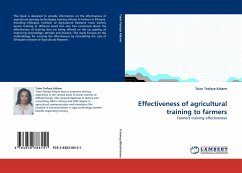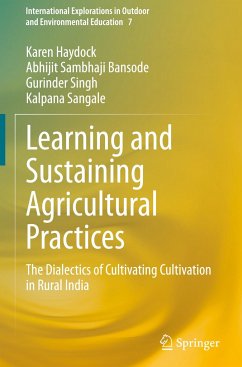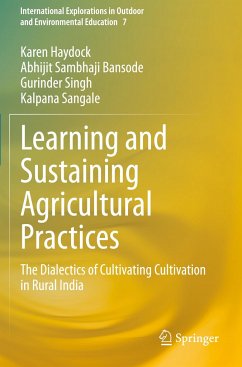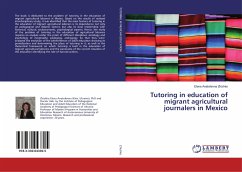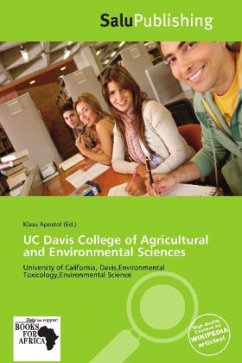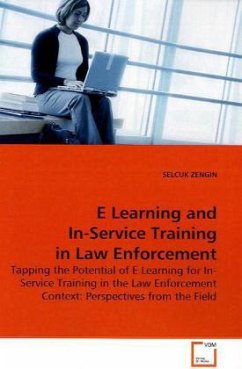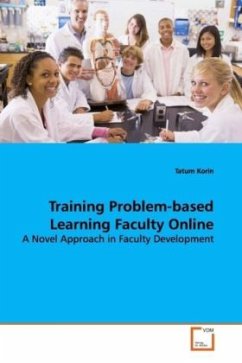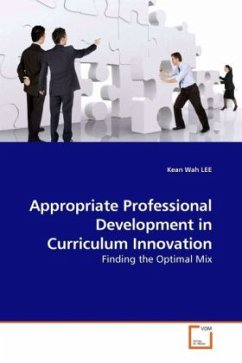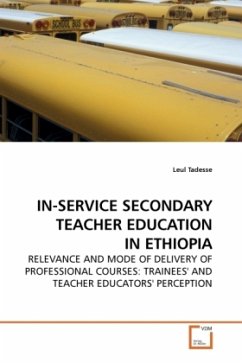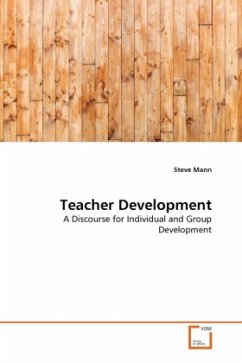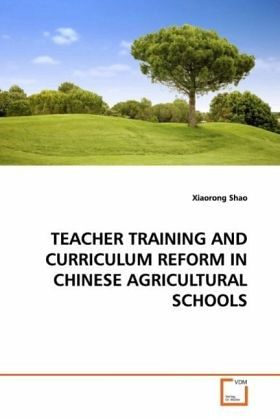
TEACHER TRAINING AND CURRICULUM REFORM IN CHINESE AGRICULTURAL SCHOOLS
Versandkostenfrei!
Versandfertig in 6-10 Tagen
32,99 €
inkl. MwSt.

PAYBACK Punkte
16 °P sammeln!
Agricultural schools in China have been undergoing ahuge transition as the system is shifting fromnon-effective academic institutions tovocational-oriented education brought on by China seconomic reforms. Changes of traditional curricularand instructional methods have been recognized as animportant strategy to vocationalize the existingagricultural educational system. To sustain thiseffort, teachers have been identified as an essentialforce in this reform movement. What kind ofattitudes, knowledge, and skills they need to have todeal with this change and how to prepare them tocarry out this ch...
Agricultural schools in China have been undergoing a
huge transition as the system is shifting from
non-effective academic institutions to
vocational-oriented education brought on by China s
economic reforms. Changes of traditional curricular
and instructional methods have been recognized as an
important strategy to vocationalize the existing
agricultural educational system. To sustain this
effort, teachers have been identified as an essential
force in this reform movement. What kind of
attitudes, knowledge, and skills they need to have to
deal with this change and how to prepare them to
carry out this challenge have become a center issue
in dialogues with the people involved. This study was
aimed at examining teachers current and desired
knowledge and skills related to curriculum
development and instructional methodology, and
identifying the areas that need to be addressed in
teacher training and professional development
programs.
huge transition as the system is shifting from
non-effective academic institutions to
vocational-oriented education brought on by China s
economic reforms. Changes of traditional curricular
and instructional methods have been recognized as an
important strategy to vocationalize the existing
agricultural educational system. To sustain this
effort, teachers have been identified as an essential
force in this reform movement. What kind of
attitudes, knowledge, and skills they need to have to
deal with this change and how to prepare them to
carry out this challenge have become a center issue
in dialogues with the people involved. This study was
aimed at examining teachers current and desired
knowledge and skills related to curriculum
development and instructional methodology, and
identifying the areas that need to be addressed in
teacher training and professional development
programs.



